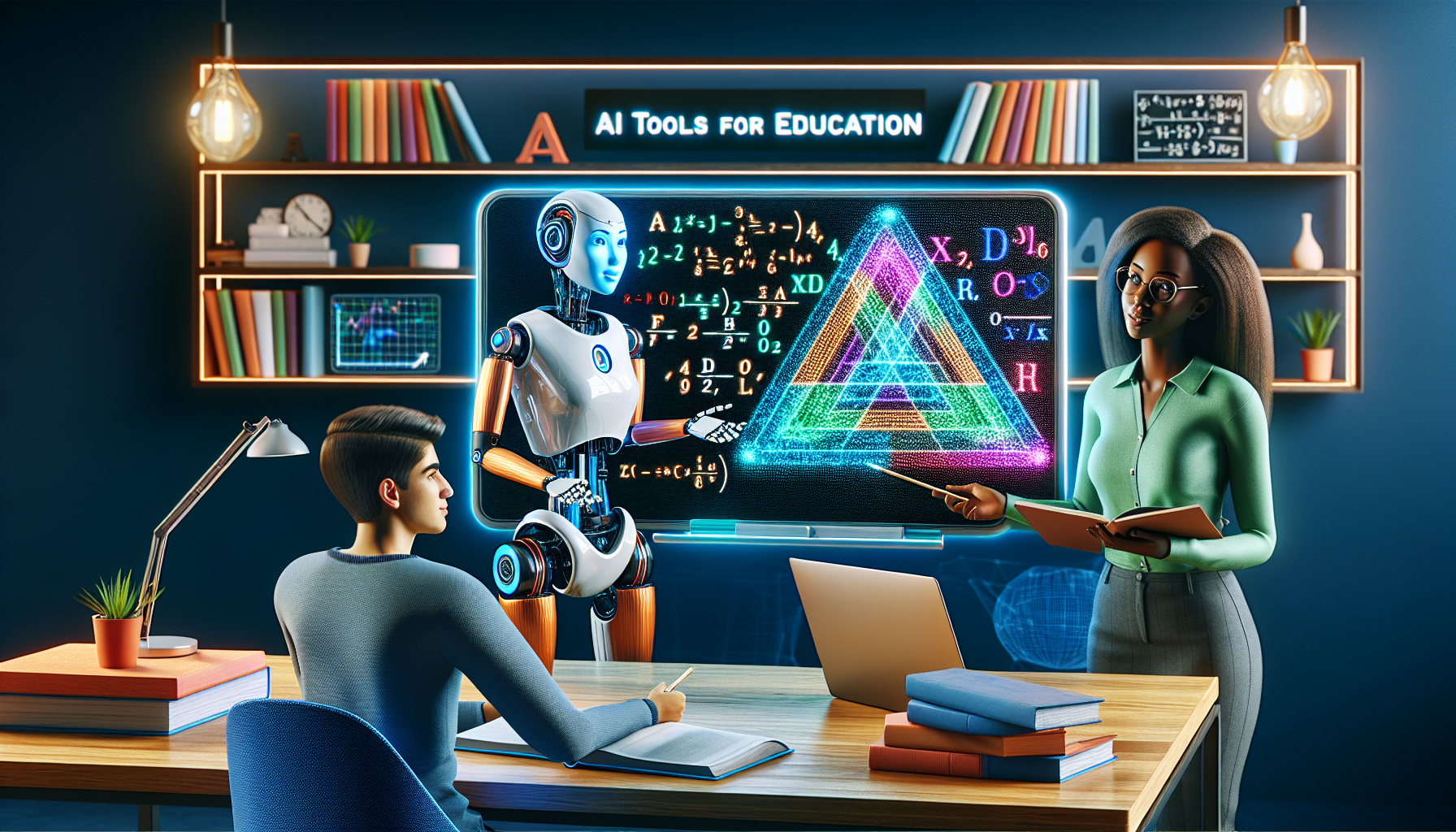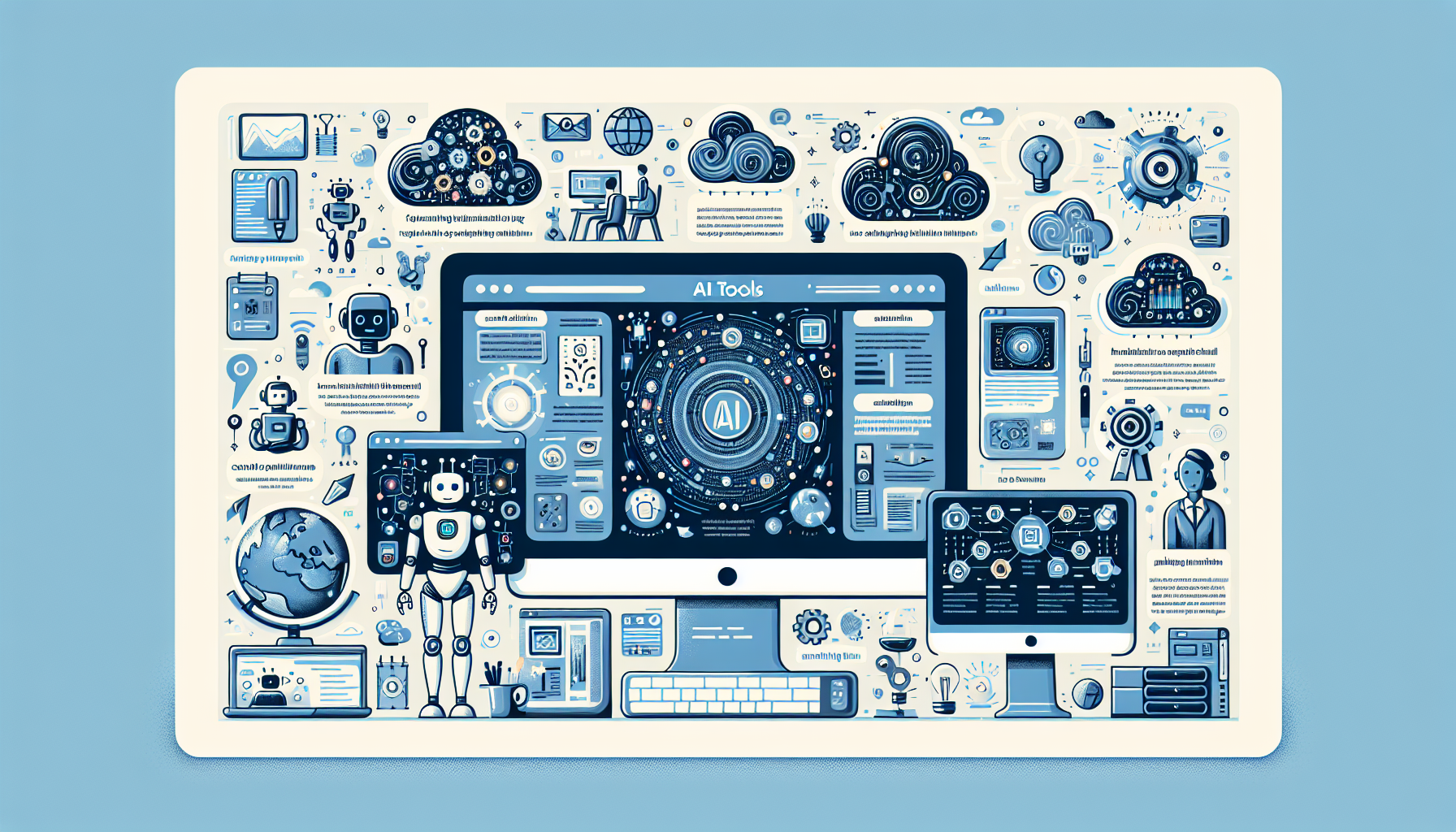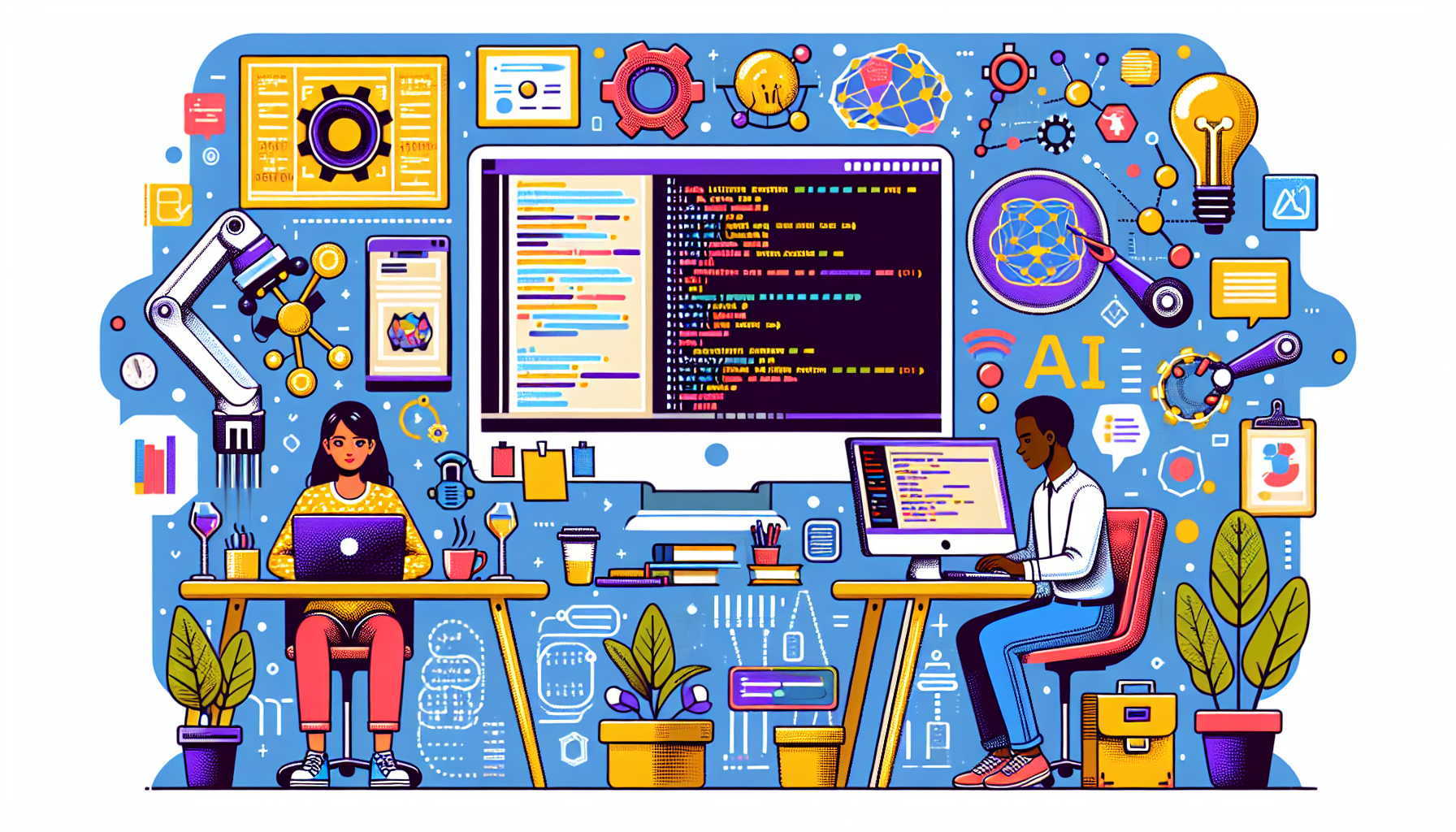| Outline |
|---|
| 1. Introduction to AI in Education |
| 2. Benefits of AI Tools in Education |
| 3. Types of AI Tools for Education |
| 4. Implementation of AI in the Classroom |
| 5. Impact of AI on Student Learning |
| 6. AI Tools for Personalized Learning |
| 7. Ethical Considerations of AI in Education |
| 8. Challenges and Future of AI in Education |
| AI Tools for Education |
|---|
|
Artificial Intelligence (AI) has been revolutionizing various industries, and education is no exception. The integration of AI tools in education has brought about significant advancements in the way students learn and educators teach. In this article, we will explore the benefits, types, implementation, impact, personalized learning, ethical considerations, challenges, and the future of AI in education. |
Introduction to AI in Education
Artificial Intelligence (AI) is being harnessed to transform the educational landscape, offering new opportunities for personalized learning, predictive analytics, and efficient administrative processes. This section will introduce the concept of AI in education and its potential impact on the learning environment.
Benefits of AI Tools in Education
AI tools bring numerous benefits to the education sector, including enhanced personalized learning, improved administrative processes, and data-driven insights. This section will highlight the key advantages of integrating AI tools in educational settings.
Types of AI Tools for Education
[aib_post_related url=’/can-any-inbound-linking-hurt-my-ranking/’ title=’Can Any Inbound Linking Hurt My Ranking?’ relatedtext=’You may also be interested in:’]
There are various types of AI tools designed to support different aspects of education, such as intelligent tutoring systems, language processing applications, and virtual reality simulations. This section will delve into the diverse range of AI tools available for educational use.
Implementation of AI in the Classroom
Implementing AI in the classroom involves integrating AI-powered platforms, adaptive learning technologies, and data analytics tools to enhance teaching and enable personalized learning experiences. This section will discuss the practical applications of AI in educational settings and its impact on educators and students.
Impact of AI on Student Learning
[aib_post_related url=’/ai-tools-for-education/’ title=’Empower Learning with Top AI Tools for Education: A Comprehensive Guide’ relatedtext=’You may also be interested in:’]
The integration of AI tools has the potential to significantly impact student learning outcomes, providing personalized learning experiences, adaptive assessments, and targeted interventions. This section will explore how AI influences the learning process and student performance.
AI Tools for Personalized Learning
AI tools enable personalized learning experiences tailored to individual student needs, learning styles, and pace. This section will discuss how AI supports personalized learning and the associated benefits for students and educators.
Ethical Considerations of AI in Education
Ethical considerations surrounding AI in education encompass data privacy, algorithmic bias, and the responsible use of AI tools. This section will address the ethical challenges and considerations associated with integrating AI in educational settings.
Challenges and Future of AI in Education
Despite the potential benefits of AI in education, there are challenges related to implementation, accessibility, and ethical considerations. This section will examine the existing challenges and the future implications of AI in education.
In conclusion, the integration of AI tools in education presents exciting opportunities for personalized learning, data-driven insights, and enhanced teaching methods. As technology continues to advance, it is crucial to address ethical considerations and ensure equitable access to AI tools for all learners.
FAQs
1. Are AI tools beneficial for all educational levels?
Yes, AI tools can be adapted to benefit learners from K-12 to higher education and beyond, offering personalized support and learning experiences.
2. How can AI tools enhance teacher efficiency?
AI tools can streamline administrative tasks, provide data insights, and assist in creating personalized lesson plans, ultimately saving time and enabling a focus on teaching.
3. What ethical considerations should be addressed when integrating AI in education?
Data privacy, algorithmic bias, and the responsible use of student data are critical ethical considerations that should be carefully addressed.
[aib_post_related url=’/strategic-use-of-images-in-seo/’ title=’Strategic Use of Images in Search Engine Optimization’ relatedtext=’You may also be interested in:’]
4. Will AI tools replace teachers?
No, AI tools are designed to support and augment the role of educators, offering personalized insights and resources to enhance the teaching and learning experience.
5. What are the future implications of AI in education?
The future of AI in education may involve more advanced personalized learning experiences, adaptive assessments, and further integration of AI tools in learning environments.



